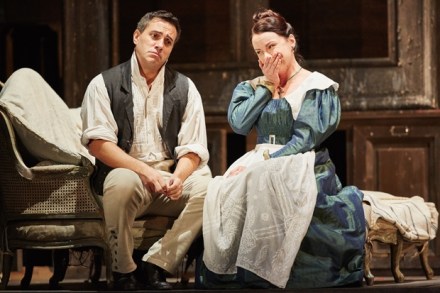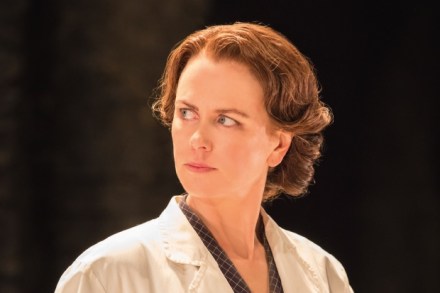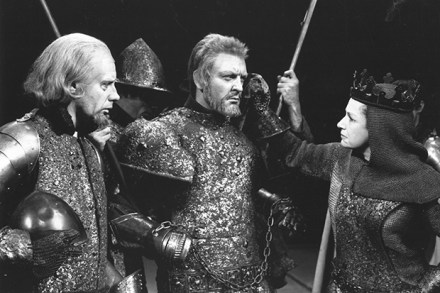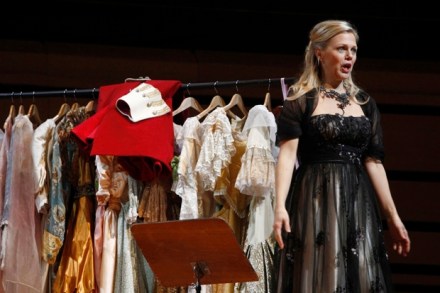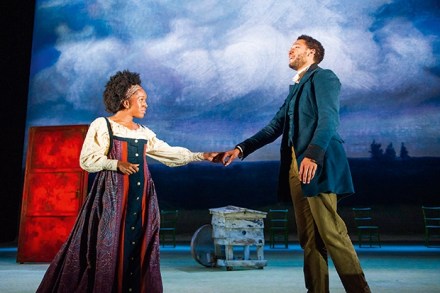The characters are barely stereotypes: The Father at the Wyndham’s reviewed
The Father, set in a swish Paris apartment, has a beautifully spare and elegant set. The stage is framed by a slender rectangle of dazzling white dots which impart an air of incalculable and almost intimidating opulence to the show. I felt I was lucky to be there. Here’s the plot. Kenneth Cranham plays a doddery old sausage whose daughter and her husband want to dump him in a nursing home. Will they succeed? That’s the plot. Writer Florian Zeller uses pranks and false starts to create suspense and to illustrate Dad’s scrambled mentality. Different actors play the daughter, the son-in-law and the day-nurse. At first this is gratifyingly weird




